Governor vs. CM: The Punjab Power Play
Echoes from Raj Bhavan: Gubernatorial Grumbles or Genuine Grievances?
The Dissonance in Punjab Politics
The most recent four-page letter from the Governor of Punjab to the Punjab Chief Minister, dated 25th August 2023, has stirred considerable discussions in political, academic, and media circles. It's not just the possibility of invoking Article 356 of the Constitution, suggesting the President’s Rule, that's drawing attention, but also the mention of potentially applying section 124 IPC. For the residents of Punjab, there's a looming question: Are the exchanges between the Governor and Chief Minister a genuine confrontation or just political posturing?
The Formalities and the Underlying Tension
At a glance, the Governor's letters, penned from the grand Raj Bhavan in Chandigarh's prestigious sector 6, seem to be merely requisitions for standard information from the Chief Minister. Yet, these letters remain unanswered, despite the Chief Minister's sharp and often biting remarks both inside the Vidhan Sabha and at public events. While some comments are direct, others hint at the Governor with thinly-disguised references. Historically known as the 'Lord Sahib' during the British era, the Governor doesn’t appear particularly pleased. This is indeed ironic, especially when viewed in light of the age-old "doctrine of pleasure". Traditionally, this doctrine implies that the Governor is invariably "pleased to" make his decisions, even in matters as grave as dismissing a clemency plea.
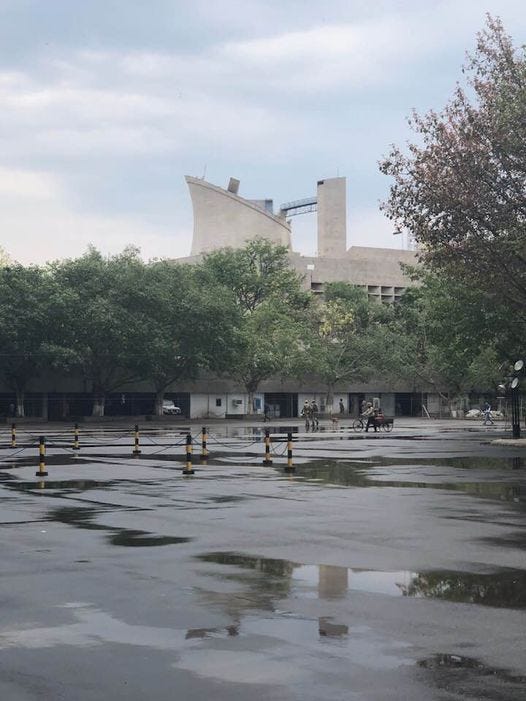
Constitutionality and Obligations
Moving past the political theatre and sensationalist coverage, the crux of the matter is straightforward. Article 167 of the Indian Constitution mandates the Chief Minister to keep the Governor informed. Conversely, the Governor, acting under Article 163, is typically bound by the advice of the Council of Ministers, led by the Chief Minister. However, the Governor retains the constitutional authority to seek specific information. While the details requested by the Governor are standard, any seasoned bureaucrat within the Punjab Civil Secretariat should easily provide a comprehensive response detailing the State's actions, especially regarding the drug trade.
Punjab's Response to Drug Trade
The State of Punjab has reported numerous significant drug seizures, with media coverage highlighting joint operations between the Punjab Police and the BSF. A cursory glance at the figures concerning the number of FIRs registered under the NDPS Act and subsequent arrests suggests the state's proactive approach against the drug menace. But critics argue that what gets captured is just the tip of the iceberg. They assert that the extensive drug seizures only underscore the vast quantities of illegal narcotics entering Punjab. The challenge is not just from the shadowy world of street peddlers but increasingly from registered chemists/pharmacists. Alarmingly, even licenced liquor stores, though privately operated, have come under scrutiny. Despite their operations being overseen by the competent Excise Department, there are rising concerns about their complicity in the drug trade1.
The Role of Punjab's Bureaucracy in Governance
Instead of penning letters, the Governor of Punjab could choose a more direct approach by summoning the Chief Secretary and the DGP to Raj Bhavan for pertinent information. Such a direct method, however, might lead to accusations of sidelining the democratically elected political establishment. Officers of All-India services, including the IAS and IPS, are obligated to adhere to the Governor's requests, or more aptly, directives. It's essential to remember that their ultimate authority, in terms of discipline and appointments, lies with the President of India, which essentially means the Central Government.
The Governor's Constitutional Jurisdiction
A fundamental question arises: How should the Governor respond if his letters are met with radio silence from the influential Punjab Civil Secretariat, or answered only through the Chief Minister’s tweets or press conferences? It's universally accepted that the Governor possesses the constitutional authority to request such information. The more intricate, constitutional conundrum that surfaces here is whether the CM's secretariat's non-compliance with Raj Bhavan's requests can be a substantial basis to invoke Article 356 of the Constitution of India, popularly referred to as the President’s Rule.
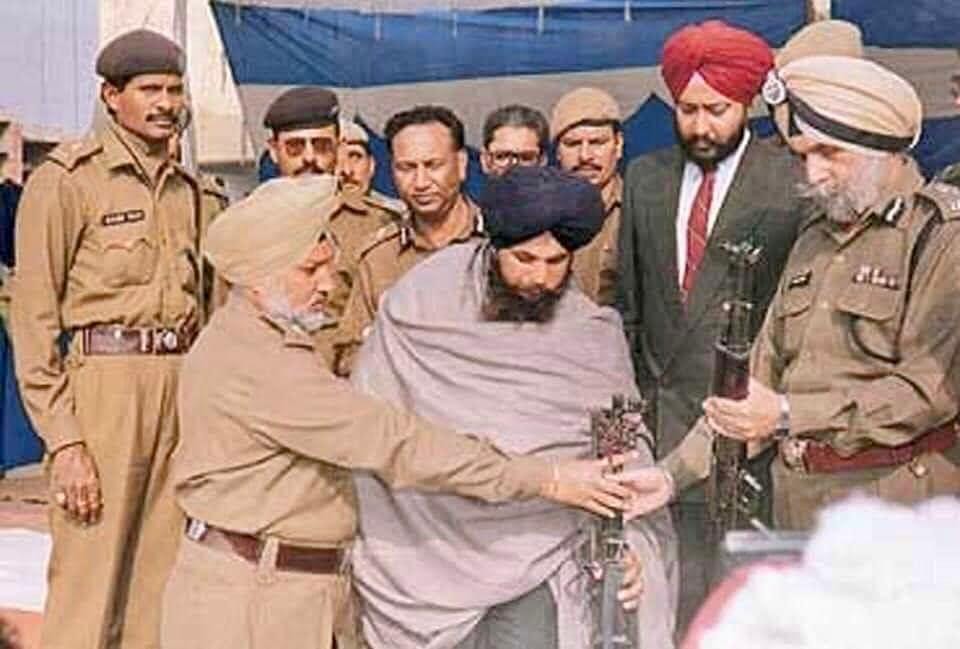
Historical Precedents of President’s Rule in Punjab
Punjab's history with the President’s Rule isn't unfamiliar. In recent memory, Indira Gandhi imposed it in 1983, resulting in the dissolution of her own Congress Government led by Sardar Darbara Singh. The rule continued until 1985. Post the Rajiv-Longowal Accord, elections were conducted, leading to Surjit Singh Barnala's appointment as Chief Minister. However, the winds changed in 1987, leading to the dismissal of the Barnala Government and the reimposition of the President's Rule. Successive Governors then took direct control over the State, a condition that persisted until February 1992. This was when, despite an election marred by threats and a dismal voter turnout, the Congress Government under Sardar Beant Singh came to power. The context and conditions leading to the then Presidential proclamations, particularly the State's cardinal and sacrosanct duty to uphold Article 21 (right to life and personal liberty), remain unchallenged even in retrospective analysis.

Constitutional Breaches and President’s Rule
At the heart of this discussion lies a pivotal question: Can even the slightest violation of the Constitution justify the recommendation of President’s Rule under Article 356? Numerous civil writ petitions challenging executive actions, notifications, and rules are pending in the Punjab and Haryana High Court. Some of these challenges, alleging violations of the Constitution, find validation even up tp the Supreme Court. The Constitution, being the supreme law of the land, ensures that any breaches, particularly by the state or its instrumentalities, are set aside immediately. Intriguingly, while minor legal transgressions can lead to criminal offences, a violation of this paramount law isn't inherently criminal. Both the Governor and state officials, including the Chief Minister, swear to uphold the Constitution before commencing their duties. Yet, the current scenario in Punjab shows a tug-of-war between these constitutional authorities, both asserting the legitimacy of their actions, under the Constitution.
Power Dynamics in Democratic Governance
Democracy, as a cornerstone of our Constitution, must operate within its guidelines and the various central and state laws in force. Advocating for power to solely lie with elected representatives could potentially undermine the system of checks and balances enshrined in our Constitution and the Rules of Business framed under Article 166. For instance, an elected village Sarpanch cannot dictate the revenue patwari as regards land records, just as an elected MLA, regardless of their electoral margin, can't issue directives to a District Magistrate/ Deputy Commissioner, without a legal basis. While in most situations, decisions made by the Council of Ministers should be faithfully executed by state administrators, from the highest echelons to village-level staff, it's a stretch to argue that a Governor, in a non-elective role, lacks the authority to request information, especially when the Constitution explicitly provides for it in Article 167.
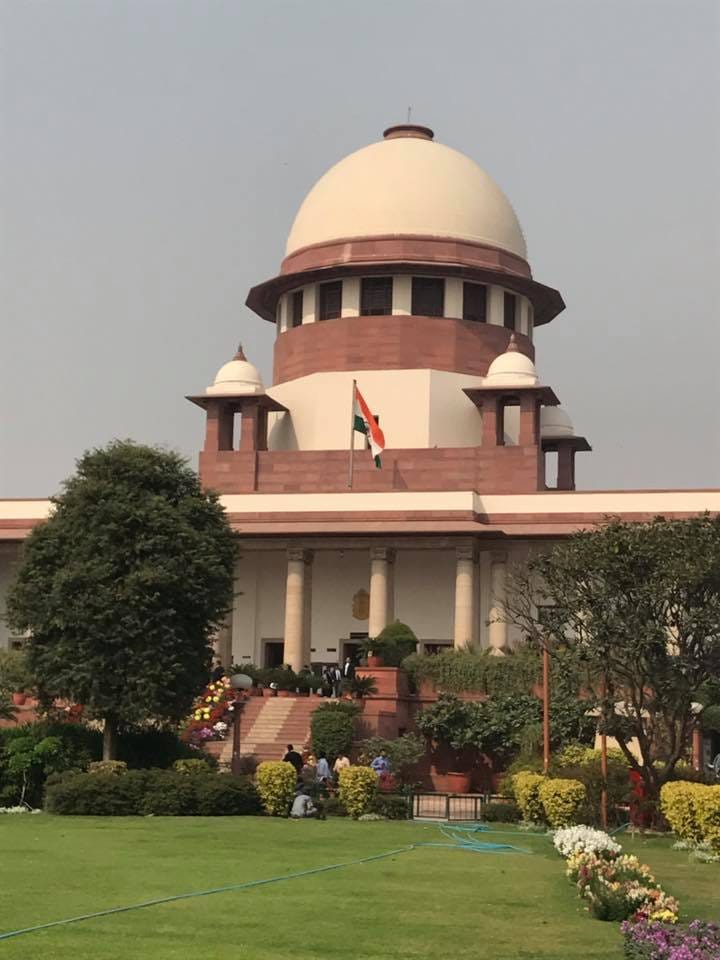
The Intricacies of Colonial-Era Legal Provisions
While many are somewhat familiar with the colonial-era Section 124-A of the IPC, which deals with "sedition", it's only recently that researchers and journalists have turned their attention to Section 124 of the IPC. This latter section is captioned: “Assaulting President, Governor, etc., with intent to compel or restrain the exercise of any lawful power”. No one would argue that threats against the high offices of the President or Governor should be tolerated. However, discerning whether seemingly offhand, inconsequential political remarks equate to potent threats capable of undermining these constitutional figures is crucial. The stringent punishment under Section 124 IPC, which can be as severe as seven years of imprisonment, underscores the gravity of the offence. Through the lens of the "principle of proportionality", a concept recently emphasized by the Supreme Court in several judgements, this provision is far from trivial.
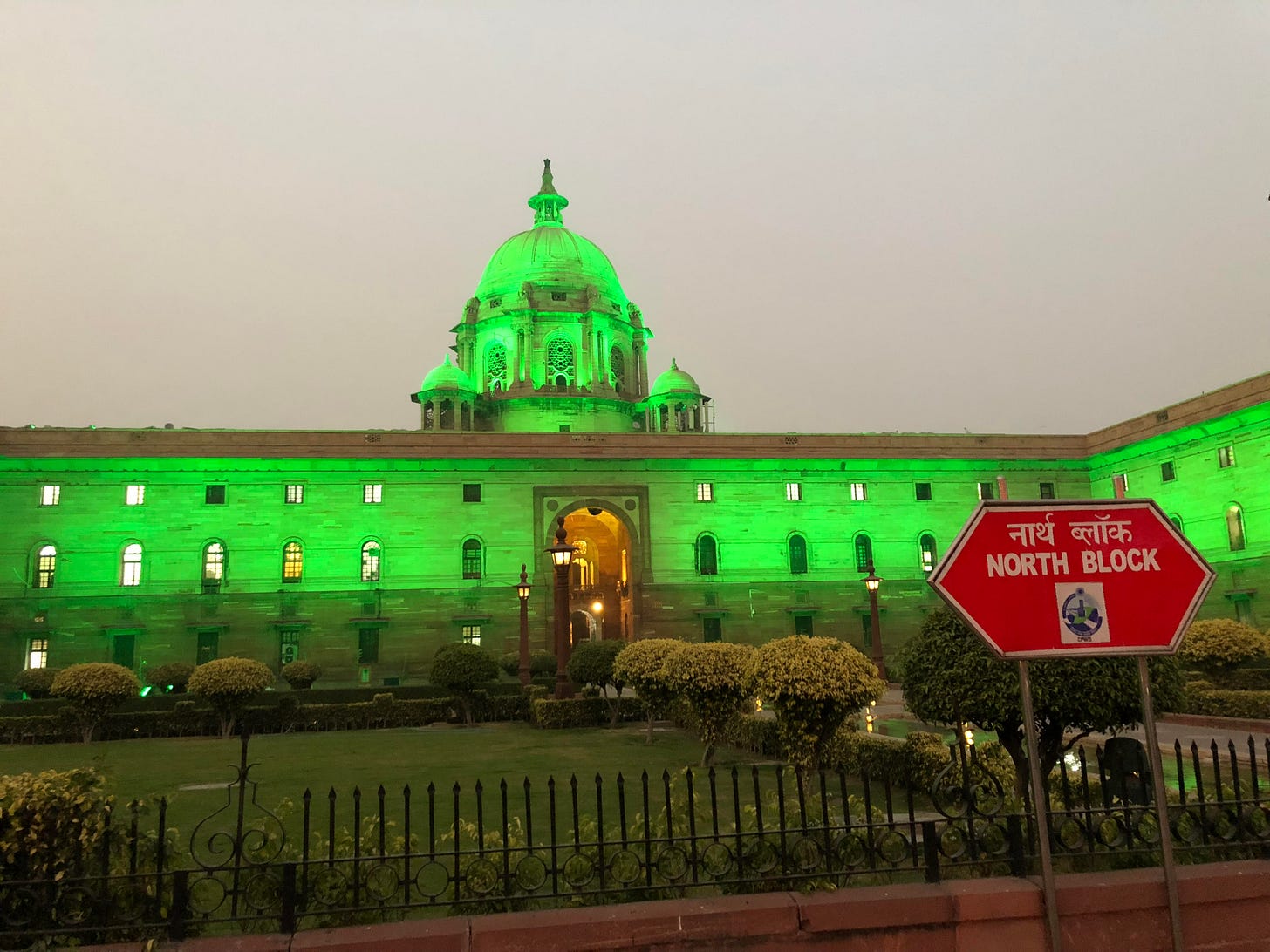
Possible Outcomes of the Ongoing Tensions
As the current conflict continues to unfold, its potential trajectory is a topic of speculation. The words of Alexander Pope, “what mighty contests rise from trivial things”, seem apt in this context. Initially, the issue may reach the Rashtrapati Bhavan, where the esteemed President of India would, following the advice of the Union Council of Ministers, determine if Punjab's governance aligns with the Constitution's provisions, as stated in Article 356. The President's subjective decision is typically unquestionable, though any affected party can contest it before the Supreme Court, which may be unlikely to offer immediate relief.
Alternatively, the matter might return to the Supreme Court, which recently addressed the issue regarding the summoning of the session of Punjab Vidhan Sabha. A prevailing sentiment suggests that the honourable Justices might not welcome the reintroduction of such a dispute so soon after its previous adjudication.
Lastly, the people of Punjab must determine their stance on whether this dispute is a genuine conflict or mere theatrics. The electoral process's inherent delay means the public must wait until the next elections to voice their opinion, though this doesn't restrict Punjab's citizens from expressing their views on the current predicament.
An Appeal for Amicable Resolution
Despite the mounting tension, it's imperative to remember that the differences between these paramount constitutional authorities are not insurmountable. Ideally, these disagreements can be amicably settled over a congenial conversation, perhaps over tea at the Raj Bhavan. Subsequent to such a meeting, officials from both the Raj Bhawan and the Punjab Civil Secretariat could collaborate to draft communications addressing the Governor's valid concerns.
Punjab's history, marked by prolonged stretches under President’s Rule—extended beyond the typical 6+6 month periods through serial constitutional amendments—stands as a somber reminder. Recollections of those turbulent times would deter any Punjabi from wanting a return to governance by non-elected bureaucrats or former civil servants, typically appointed as advisers during President’s Rule. It's crucial to remember that the people of Punjab, like all Indian citizens, are entitled to a representative government that resonates with and acts in accordance with their aspirations and needs, rather than the often detached President's Rule—a governance system that hasn't been deemed appropriate even for a state like Manipur, under the current circumstances.
(STOP PRESS)
Epilogue: Bracing for a Political Storm?
Hot on the heels of a communication dated 25th August 2023, in which Punjab Governor Shri Banwarilal Purohit mentioned the possibility of recommending the imposition of the President's Rule in Punjab, Chief Minister Mr. Bhagwant Mann convened a media briefing in Chandigarh today (26th August, 2023), that concluded barely minutes ago. In his statement, Mr Mann asserted that the Governor's words seemed to carry an undertone of a threat to Punjab's peace-loving populace, while casting shadows of doubt on the State's law and order scenario.
Mounting a firm counter, the Chief Minister showcased the milestones achieved by his AAP-led government. Highlighting their relentless drive against illicit activities, he pointed out that just in the month of August, the State had interdicted a staggering 41 kg of heroin. Beyond this, the vigilant law enforcement agencies had put behind bars over 750 gangsters and confiscated an impressive tally of 786 weapons and vehicles. Mr. Mann firmly believed, and wanted the public to know, that Punjab's law and order was not merely stable but exemplary.
This fresh face-off between the State's highest constitutional personages suggests that Punjab's political theatre may be poised for prolonged drama, more intense than many might have anticipated. Is this merely the opening act of a bigger political clash? The story is still unfolding.
We, the People of Punjab, have no option but to wait.
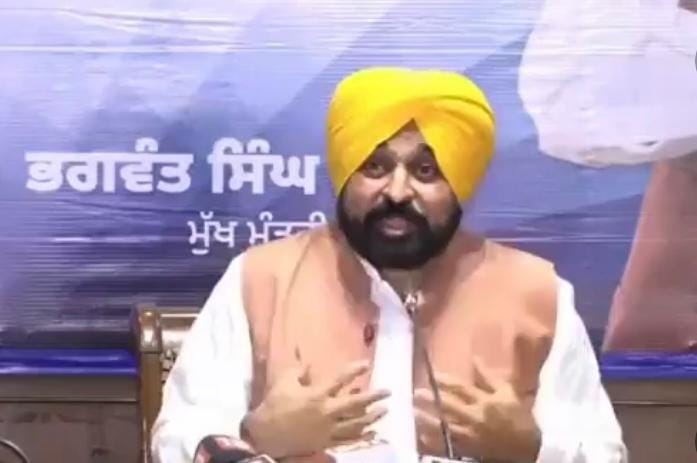
The Drug Problem in Contemporary Punjab: Unravelling Harsh Realities and Seeking Solutions
Introduction: The border Indian state of Punjab has been grappling with a serious drug problem that has had severe consequences for its society and youth, apart from its fragile economy. This rudimentary article aims to shed some light on the extent of the problem, dissect its underlying causes, explore the efforts made to tackle it, and propose potenti…

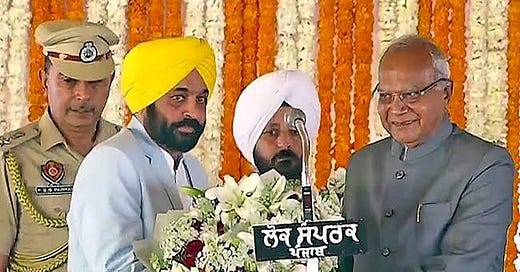


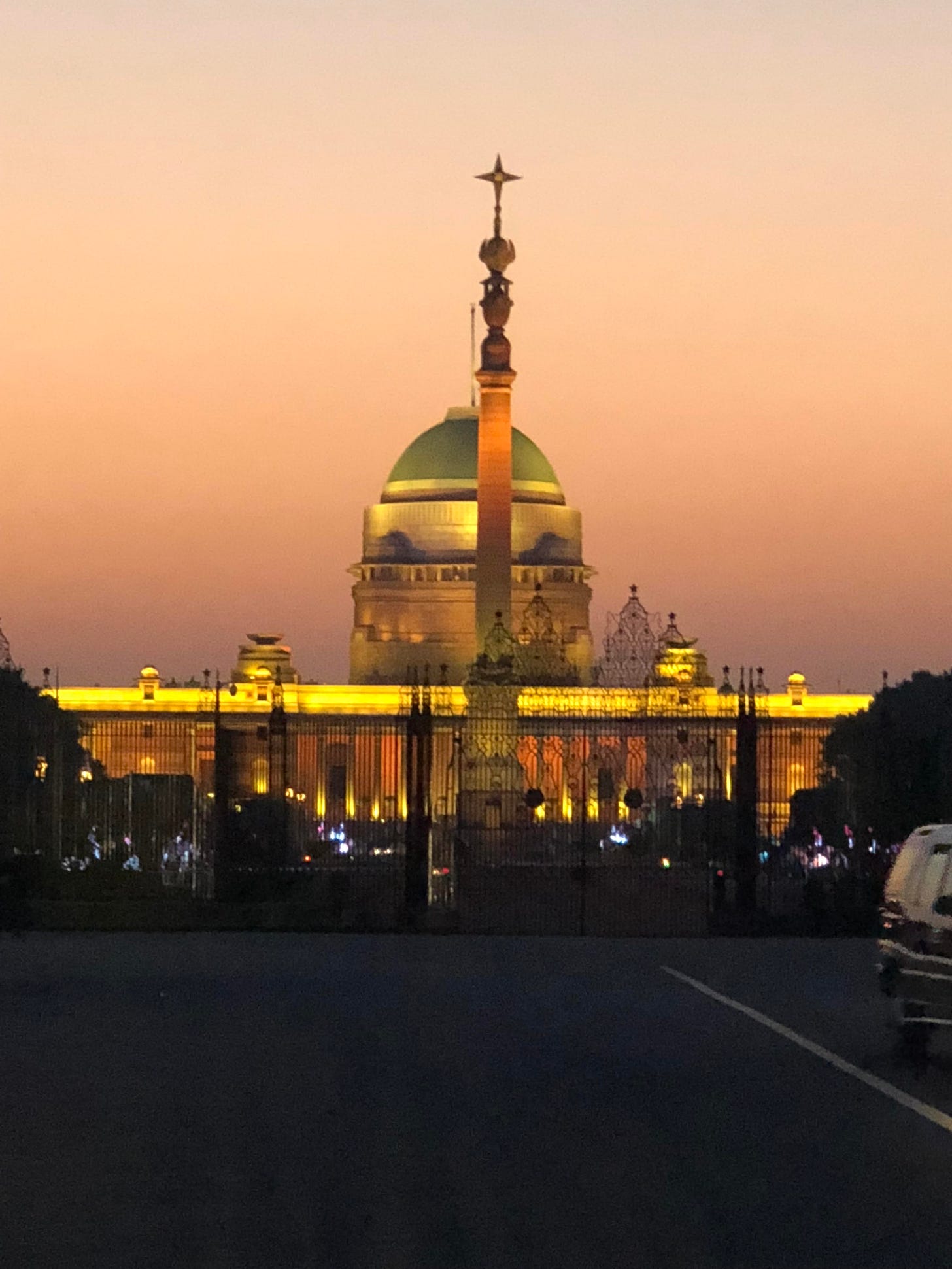


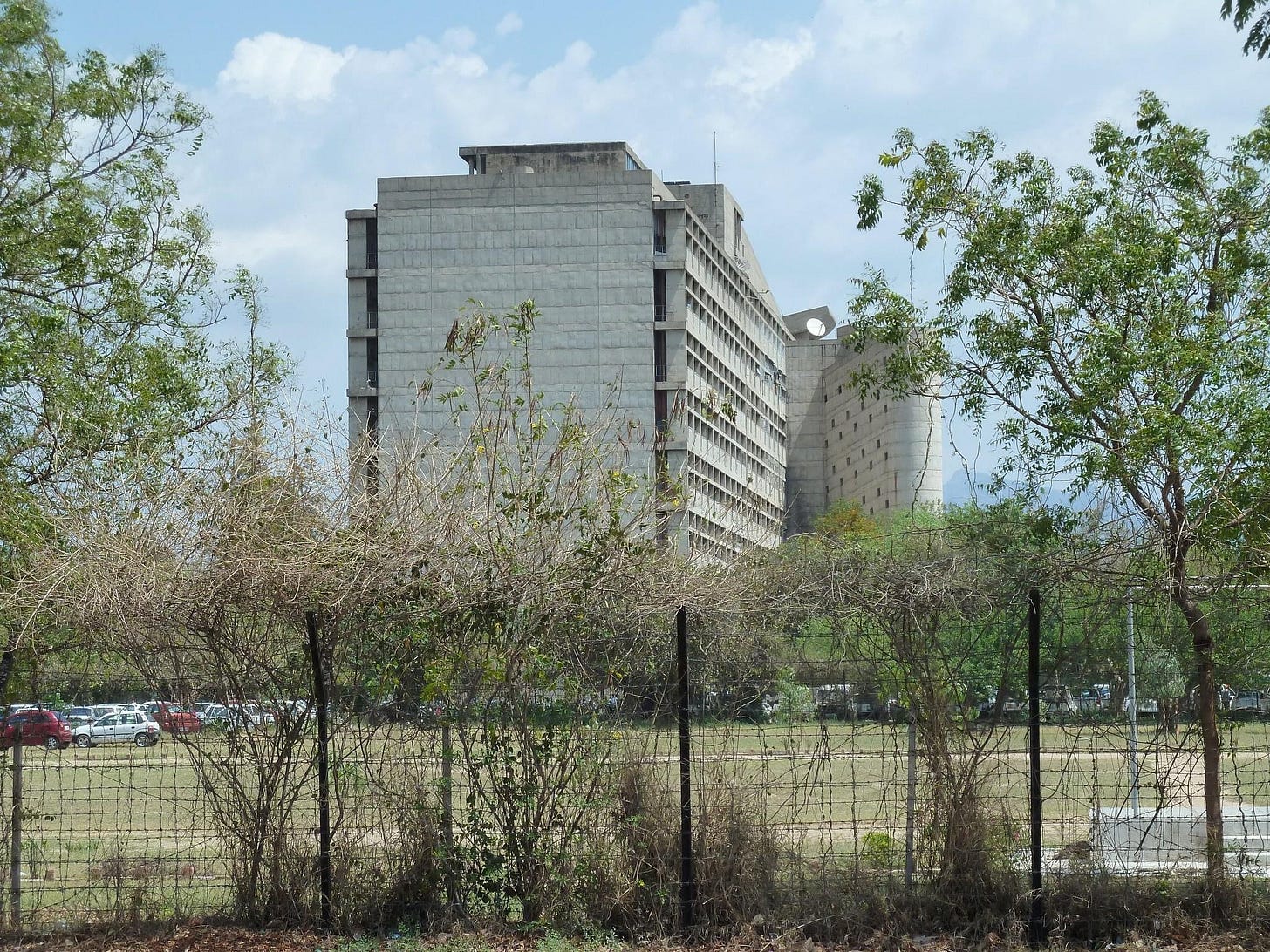
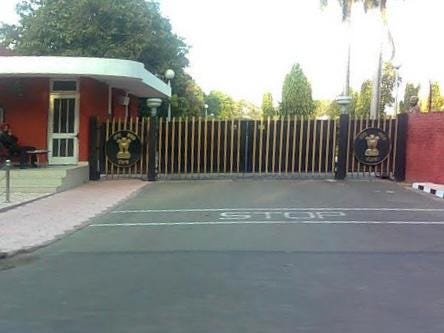
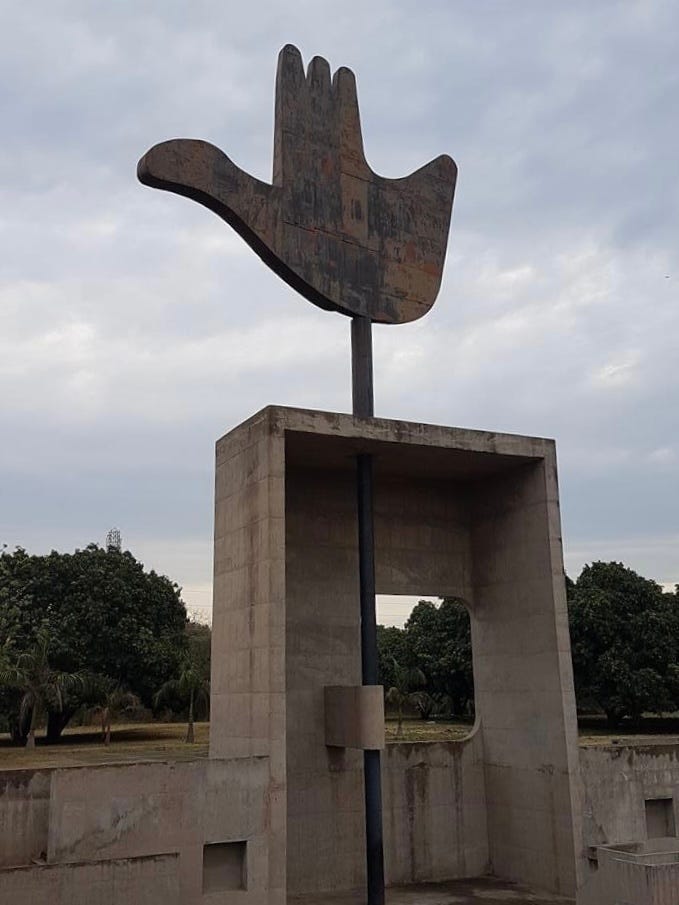
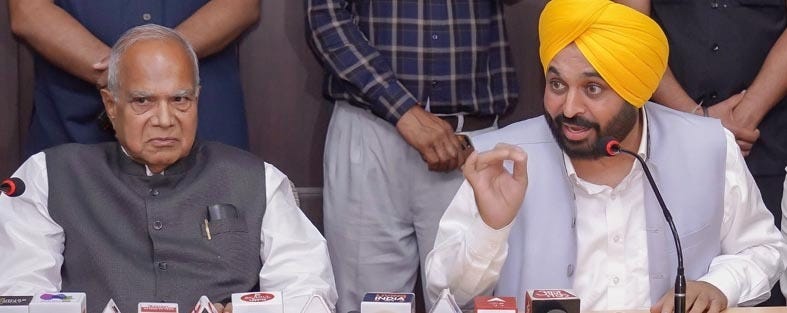

Sardar K.B.S. Sidhu, an esteemed former IAS officer, has shared insights on the intricate dynamics between the Governor and the Chief Minister of Punjab. Initially, one might feel a tad disheartened by the tone of their interactions, especially considering our rich democratic traditions and values.
After a thoughtful analysis, it becomes clear that both parties have their perspectives, which merit consideration. Yet, the manner in which these viewpoints are exchanged could perhaps be more in line with the grace expected of constitutional institutions. There's an element of zeal, possibly influenced by political ties in New Delhi. While passionate discourse is essential for democracy, it's equally vital to preserve the dignity of such august offices.
It would be heartening if someone of stature, perhaps like the Chief Justice of the Punjab and Haryana High Court, could gently remind both parties of the values and standards their positions inherently demand. There had been constrained relations between Presidents and prime ministers but to this extent.
Mr. Sidhu's article was an enlightening read, balancing the nuances of the situation adeptly. We hope and kindly request Mr. Sidhu to continue sharing such objective and timely pieces on a diverse range of topics. His insights are much appreciated.
Sardar K.B.S. Sidhu, an esteemed former IAS officer, has shared insights on the intricate dynamics between the Governor and the Chief Minister of Punjab. Initially, one might feel a tad disheartened by the tone of their interactions, especially considering our rich democratic traditions and values.
After a thoughtful analysis, it becomes clear that both parties have their perspectives, which merit consideration. Yet, the manner in which these viewpoints are exchanged could perhaps be more in line with the grace expected of constitutional institutions. There's an element of zeal, possibly influenced by political ties in New Delhi. While passionate discourse is essential for democracy, it's equally vital to preserve the dignity of such august offices.
It would be heartening if someone of stature, perhaps like the Chief Justice of the Punjab and Haryana High Court, could gently remind both parties of the values and standards their positions inherently demand. There had been constrained relations between Presidents and prime ministers but to this extent.
Mr. Sidhu's article was an enlightening read, balancing the nuances of the situation adeptly. We hope and kindly request Mr. Sidhu to continue sharing such objective and timely pieces on a diverse range of topics. His insights are much appreciated.